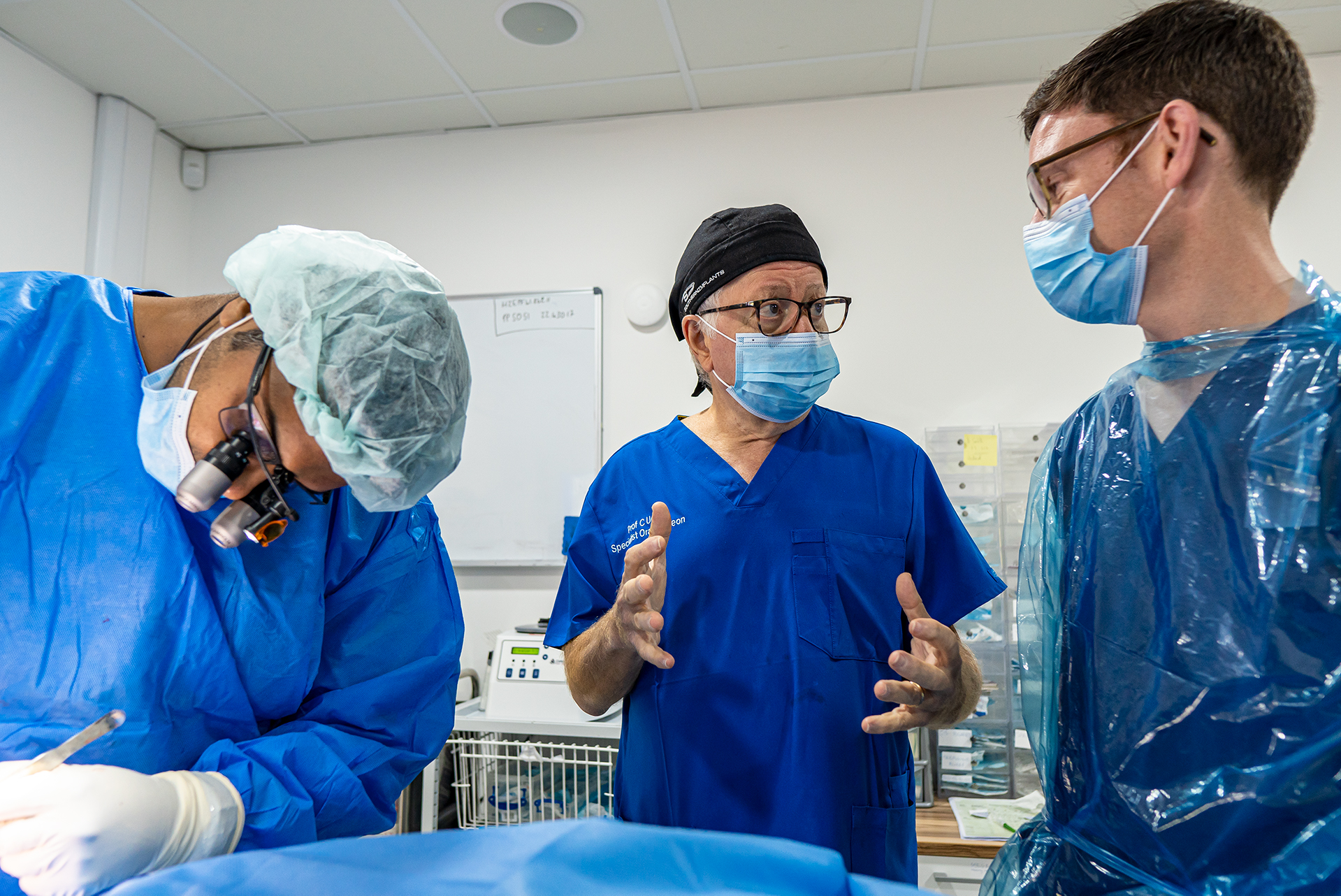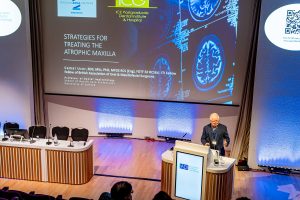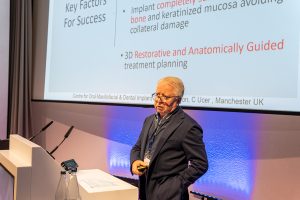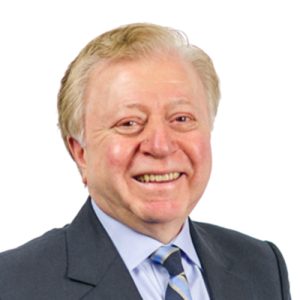Advancing your training means more focused care
Featured Products Promotional FeaturesPosted by: Dental Design 30th October 2023

The challenge with delivering modern implant therapies is that every patient will have their own, unique functional and aesthetic needs, as well as unique lifestyle factors. All of these aspects will need to be taken into account when treatment planning, for a successful outcome that lasts. At the same time, thanks to the internet, people are now able to access a vast amount of information. If they previously thought a removable prosthesis was the only option for them, many now realise that they may be suitable for a dental implant.
In order to help as many people as possible, and offer comprehensive high-quality care, practices must be patient-focused. The dental team should be willing and able to offer advice and education on a range of topics and treatments, in order to guide people towards making the right decisions to improve their health.
Forward-thinking dentists will therefore be knowledgeable and skilled in a number of treatment modalities. This means they are better equipped to find the optimal solution that meets every patient’s expectations and is clinically appropriate. If a patient with complex oral needs starts a conversation about dental implants, a dentist trained in several methodologies will be more confident in discussing the most appropriate options and even providing them.
Giving more implant patients, more choice
 The quality and quantity of existing bone is key to suitability for dental implant therapy. Without enough healthy bone, there is a greater risk of complications and treatment failure.[i] Bone could be inadequate for a number of reasons, including disease, such as peri-implantitis, and injury. Individuals who have had an extraction or suffered tooth loss – and the tooth was not replaced – may also have atrophied bone with new hard tissue not yet formed.[ii]
The quality and quantity of existing bone is key to suitability for dental implant therapy. Without enough healthy bone, there is a greater risk of complications and treatment failure.[i] Bone could be inadequate for a number of reasons, including disease, such as peri-implantitis, and injury. Individuals who have had an extraction or suffered tooth loss – and the tooth was not replaced – may also have atrophied bone with new hard tissue not yet formed.[ii]
Grafting can add bulk and stability to keep a dental implant in place. If a maxillary implant is required, a sinus lift may be indicated to add height too. Sinus pneumatisation, where the paranasal sinuses have increased in volume, often occurs following an extraction in the posterior region.[iii] Patients in research mode may have read that bone grating and sinus lifts are complex, and be daunted by the prospect. A patient-focused practice will ensure that, during the planning stage, they have answered all the patient’s questions. If they are anxious, the patient should know that the dentist is well trained, and experienced in performing augmentation procedures, safely and confidently.
Grafting procedures may not be the only option, though. Zygomatic implants, for example,  sometimes provide an alternative treatment solution that bypasses the need for hard tissue augmentation. This means that even patients with severe atrophic maxilla can enjoy the life-changing benefits of implant therapies, without the need for extensive healing periods and bone grafting procedures.
sometimes provide an alternative treatment solution that bypasses the need for hard tissue augmentation. This means that even patients with severe atrophic maxilla can enjoy the life-changing benefits of implant therapies, without the need for extensive healing periods and bone grafting procedures.
Dentists with the knowledge and skills to place zygomatic implants can offer a treatment that requires fewer appointments, with a shorter healing time in appropriate situations. Patients can get on with their lives, enjoying their new smiles. This is very appealing to people who want to invest in quality and minimally invasive dentistry, that is delivered efficiently. The need for fewer appointments also enhances value and cost-effectiveness, and zygomatic implants have demonstrated high survival rates for added peace of mind.[iv]Zygomatic implants are well-suited to immediate loading protocols in many cases, thus boosting patient comfort and convenience even further.
 Zygomatic implants do require greater skill on the part of the clinician, as well as knowledge of the different kinds of products and biomaterials available for facilitating gold-standard therapies. Progressive dentists, who want to offer patient-focused care, must access training specifically in zygomatic implants in order to offer the solution. Education in this field would also be suitable for clinicians who wish to further their knowledge of more conservative procedures. Eminent Specialist Oral Surgeon, Professor Cemal Ucer, has developed a range of courses to enable implant dentists to increase their scope of practice, including one for zygomatic and pterygoid implants. Taking place at the prestigious ICE Postgraduate Dental Institute and Hospital, Manchester, the programme will cover how to deliver graft-less zygomatic and pterygoid implant treatments in state-of-the-art facilities.
Zygomatic implants do require greater skill on the part of the clinician, as well as knowledge of the different kinds of products and biomaterials available for facilitating gold-standard therapies. Progressive dentists, who want to offer patient-focused care, must access training specifically in zygomatic implants in order to offer the solution. Education in this field would also be suitable for clinicians who wish to further their knowledge of more conservative procedures. Eminent Specialist Oral Surgeon, Professor Cemal Ucer, has developed a range of courses to enable implant dentists to increase their scope of practice, including one for zygomatic and pterygoid implants. Taking place at the prestigious ICE Postgraduate Dental Institute and Hospital, Manchester, the programme will cover how to deliver graft-less zygomatic and pterygoid implant treatments in state-of-the-art facilities.
When you know a variety of implant techniques, you can better meet your patients’ expectations and needs. Boost their satisfaction and your reputation by giving people more treatment choices that provide predictable outcomes in a range of clinical scenarios. When you train in as many modalities as you can, you will learn how to deliver a range of gold-standard care that will improve levels of oral health.
Please contact Professor Ucer at ucer@icedental.institute or Mel Hay at mel@mdic.co
01612 371842
www.ucer-clinic.dental

Prof. Cemal Ucer, BDS, MSc, PhD, FDTFEd., ITI Fellow, Specialist Oral Surgeon
Cemal Ucer first established an implant referral centre in 1995. He was awarded an MSc in Implantology at Manchester Dental Hospital following his research into guided bone regeneration and osteopromotion. He later gained a PhD for his clinical and laboratory studies into the factors affecting the success of implant treatment in iliac grafts and the investigation of the effect of skeletal bone density on implant survival. He has personally trained and mentored more than 1,000 dentists in implant dentistry as one of the main providers of implant education in the UK.
Cemal’s current clinical research interests include immediate implant placement, reconstructive bone surgery, nerve damage and the effect of bone density on the success of implant treatment. Academically, he has gained European recognition for his work on the development of a new framework for teaching and assessment of clinical competence in implantology. He is a co-author of the consensus paper produced by the Association for Dental Education in Europe (ADEE) following the first pan-European collaboration between EU universities to establish common training and assessment standards in dental implantology. He is an invited member of the working group convened by the FGDP (UK) and the General Dental Council (GDC) to update the Training Standards in Implant Dentistry (TSID) guidelines in 2012 and 2016.
Cemal is a Fellow of the Dental Trainers Faculty of the Royal College of Surgeons of Edinburgh (RCSEd) and a Fellow of the International Team for Implantology (ITI) and a member of Megagen’s MINTEC UK & I Board for education and clinical research. He is a member of the editorial board of JOMR (Journal of Oral & Maxillofacial Research) and the chair of the editorial advisory board of Implant Dentistry Today. Cemal is Professor and Clinical Lead of the MSc programme in Dental Implantology and a member of the Faculty of Examiners of the Royal College of Surgeons of Edinburgh’s Diploma in Implant Dentistry. He is a past president of The Association of Dental Implantology (ADI) (2011-2013).
Cemal has been appointed by FGDP (UK) to lead the working group to develop the “national standards in implant dentistry” which is due to be published later in 2018 following the completion of an external consultation process.
[i] Turkyilmaz, I., McGlumphy, E.A. Influence of bone density on implant stability parameters and implant success: a retrospective clinical study. BMC Oral Health 8, 32 (2008). https://doi.org/10.1186/1472-6831-8-32
[ii] Hansson S, Halldin A. Alveolar ridge resorption after tooth extraction: A consequence of a fundamental principle of bone physiology. J Dent Biomech. 2012;3:1758736012456543. doi: 10.1177/1758736012456543. Epub 2012 Aug 16. PMID: 22924065; PMCID: PMC3425398.
[iii] Alqahtani S, Alsheraimi A, Alshareef A, Alsaban R, Alqahtani A, Almgran M, Eldesouky M, Al-Omar A. Maxillary Sinus Pneumatization Following Extractions in Riyadh, Saudi Arabia: A Cross-sectional Study. Cureus. 2020 Jan 9;12(1):e6611. doi: 10.7759/cureus.6611. PMID: 31966939; PMCID: PMC6957056.
[iv] Fernando Duarte., et al. “Graft-Less Solution for Extreme Atrophic Maxilla: Zygomatic and Short Implants Combined – Case Series”. Scientific Archives of Dental Sciences 3.7 (2020): 20-25.








